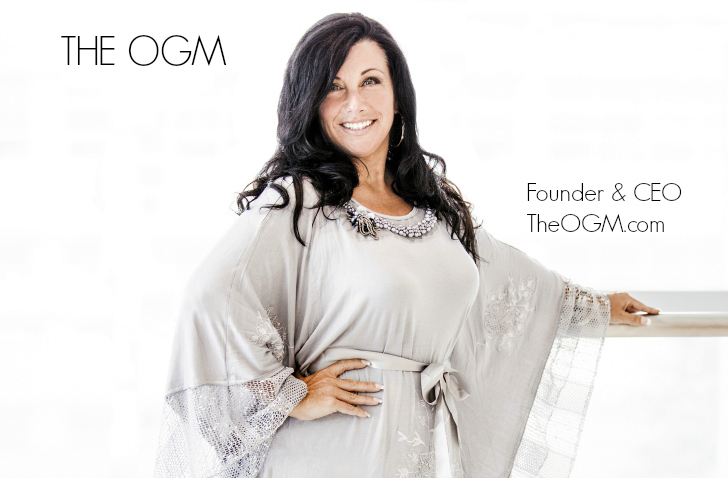The OGM Interactive Edition - Summer 2023 - Read Now!
View Past Issues

Nick Wallat is focused on doing things differently. As manager of Capital Planning in Nexen’s Oil Sands Division, Nick is combining his technical experience and international business education to push for excellence in capital management.
An engineering graduate from the University of Waterloo, Nick joined Nexen’s New Graduate Program in 2006. Completing four subsurface roles in his first five years, Nick’s been fortunate to grow his career in the oil sands industry. While he’ll always build from his technical foundation, Nick decided to act upon his business interest, and, in 2011, he began his MBA at ESADE in Barcelona, Spain. Nick will tell you that his MBA decision was based on the opportunity to attend a world-class business institution. He’ll also tell you about playing tennis on the clay courts of Spain, while overlooking the Mediterranean. We’re thinking it might have been a work-life decision.
Through working with students from over 40 countries at ESADE, Nick gained firsthand experience in taking best practices from around the world. After graduating earlier this year, he has returned to Nexen and is looking forward to bringing a different perspective to the oil sands industry.
Nick: Culture is something that I pay more and more attention to. It may seem a little academic to try and understand what culture an organization has, but, for me, culture is the way things actually work in an organization. It’s what people choose to say in meetings, how people choose to address issues, or how people hold each other accountable for their performance. I’ve come to realize it may be one of the greatest influencing factors in the performance of an organization and your own happiness at work.
Nick: I’m torn on flexibility. At first, I thought it hasn’t had a big impact, but I think I’m lying to myself. When you’re young and gaining experience, it’s key to get the best experience possible, so you simply have to be ready to do what needs to be done. That being said, I’ve worked in an organization where I’ve never had defined hours, we get every second Friday off, we have a great gym facility, and I’ve been able to take 18 months off to pursue an MBA. So, yes, flexibility has been an important part of my path so far—it’d be foolish to say it won’t continue to be.
Nick: To me, if you have a “sense of community,” then work becomes more than work. Work becomes where your friends are, where you truly care about how what you do affects the company, and work becomes something that you’re proud of.
Nick: For me, I think it was a struggle to get noticed. When you’re coming out of school, you’re ready to rock and change the world—long on ambition and short on experience. At the start, it’s tough to build your brand and to be trusted with more responsibility. Luckily, I was given a few opportunities to step up, and I had enough sense to really focus and capitalize on those opportunities. A word of advice to those entering the workforce: be patient and prepared, opportunities come out of nowhere, and you have to be ready to make the most of it.
Nick: Have faith that effort and high-value work will be recognized. When you’re starting out, it’s tough to tell if anyone (a) pays attention to you or (b) cares about what you’re doing. Trust me, at a good organization, both are true! Make an honest effort to create a positive difference in your organization. I try to invest time to do more than is required and, for the most part, it has been recognized and rewarded.
Nick: Definitely not! I went out to Waterloo to become a mechanical engineer and design cars. After working for three different automotive companies pursuing my degree, I realized that it might not be the best fit. I chatted with some classmates who had co-op positions in Calgary—I realized that the quality of work in the energy industry and the opportunities in my hometown were definitely worth exploring. I was lucky enough to land a co-op position with Nexen and have been working here ever since. Needless to say, I think it was the right fit!
Nick: My sense of satisfaction comes from working with teams to put out really high-quality work that makes a difference.
Nick: Hugely important—in my opinion, our generation will have a different educational experience than previous ones. We’ll need to constantly evolve to successfully grow our careers.
I was lucky enough to recently take 18 months away from work and pursue an MBA in Barcelona, Spain. Being immersed in an environment with people from over 40 different countries makes you realize two things—how interconnected we are becoming and how many talented people are out there. If you want to stand out in a world of talent, self-development is not optional.
Nick: This may seem a little trite, but I think for me it came down to knowing how to use a computer better! I continue to attempt to differentiate myself through pulling together analysis and presentation material faster and to a higher quality. Your time is precious, so if you can pull together work quickly, then you can either spend your time refining your messages or moving on to the next task. I like to think that part of my personal brand is being trusted to complete very high-quality work in a pinch.
Nick: Hmm, I’d probably have to say Alex Guarnaschelli—she’s a celebrity chef from New York. I love geeking out on food, and I think her passion and cerebral approach to cooking is inspiring. To top it off, she’s a super articulate TV personality, so I don’t think we’d run out of things to talk about! I’d happily spend our elevator time chatting about cooking.
Nick: Yes, I did. I love my parents, but as Will Smith would say, parents just don’t understand! At the age of 17, I packed my bags and moved 3000 km east to study engineering at Waterloo.
Nick: I can confidently say that my university experience has defined my career. Through taking the cooperative education program at Waterloo, I had the chance to work for five companies in three industries, and, most importantly, these experiences first made me realize what I didn’t want to do. In my final term, I was lucky enough to find something that I really wanted to pursue. I had an eye-opening experience working in corporate planning at Nexen. It made me realize that I wanted to work in the energy industry, but it also made me realize how interesting it was to combine deeply technical and commercial work to generate value.
Nick: 1. Diverse experiences: we’ve been exposed to a lot of information and know what is out there, so we’re looking to try new things.
2. Real responsibility/opportunity to make an impact: we’re impatient and eager to make a difference.
3. Clear expectations and real-career paths: I think our generation can sometimes get a bad rap of being “disengaged” and “expectant.” I think some of that is due to a lack of good communication from employers. We’re growing up with Facebook, Twitter, LinkedIn, Instagram, Snapchat, and a bunch of other stuff that I’m too old to know about. Simply put, we expect constant, high-quality communication. An employer needs to be honest with a young professional, so that they know what chances they have to grow with the company.
Nick: Here’s my take: When you start your career, training and development should be a ten to build your skill set and launch your career. As you and your skills grow, I think your priorities evolve to a point where global opportunities become “the ten.” You’ll want to continue to get the best experience, but you’ll have the chance to broaden your skills in the international arena. Finally, I think you’ll enter a phase where you start to reap some rewards from your experience, and compensation will become increasingly important.
Nick: For me, it was all about the summer of 2011. Over the summer, our team successfully designed and submitted a regulatory application for a multiple pad SAGD development. I then moved to Spain and started my MBA. Oh yeah, during all of that, I married the girl of my dreams! It was a roller-coaster summer, but it’s put me on an amazing path going forward.
_____________________________________________________________________

Tina Olivero
Fill out this request and we will have a product & service expert get in touch with you.
Spread the word about Nick Wallat!